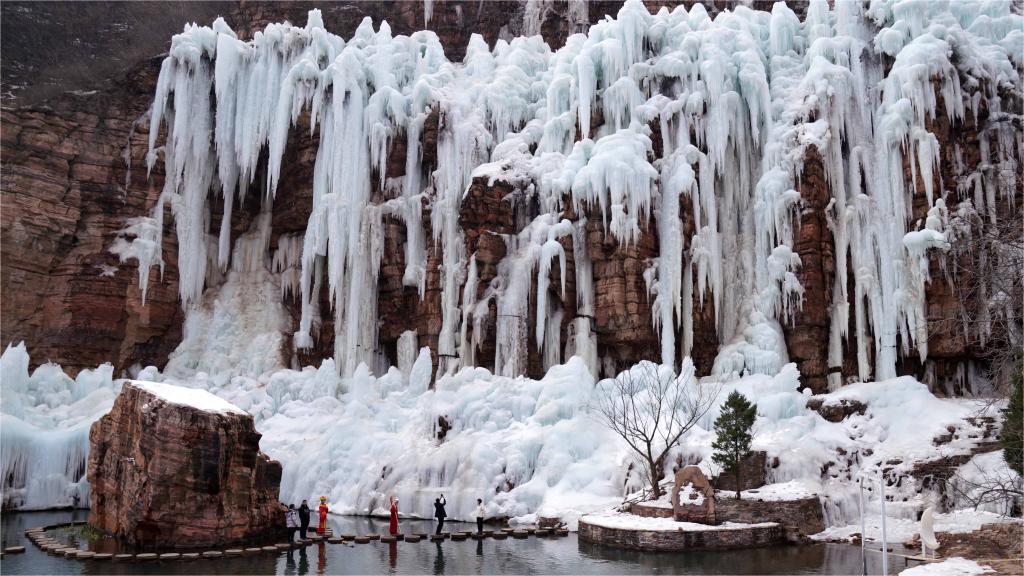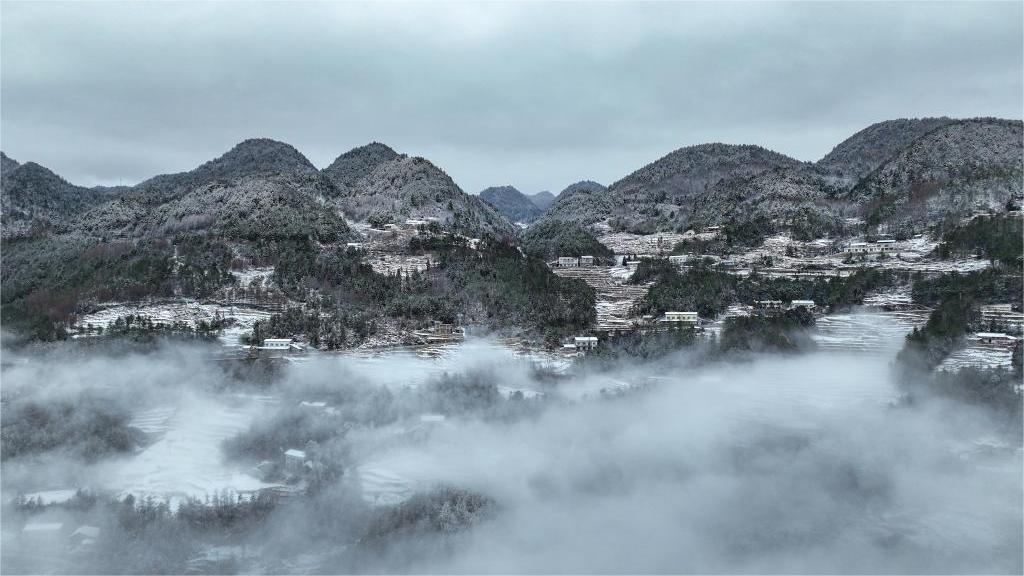Severe cold front hits central, eastern regions; schools forced to delay start of new semester
Over the next four days, there will be a significant temperature drop from west to east and from north to south in the central and eastern regions, with a temperature decrease of more than 20 C in many southern areas, according to media outlets on Monday. Due to the drastic temperature change, for the safety of students, many primary and secondary schools in Wuhan, Central China’s Hubei Province, have officially announced that the return to school will be delayed until February 26.
According to the forecast from China Weather Network, on Monday, snowfall will mainly occur in Northwest China's Xinjiang Uygur Autonomous Region, Southwest China's Xizang Autonomous Region, Northeast China, North China, and other regions, while rain will hit the Yangtze-Huaihe River Basin and the Yangtze River Delta. Rain and snow weather in the central and eastern regions will reach its peak on Tuesday, and the rain and snow boundary will continue to move south starting the day after tomorrow, gradually advancing to the areas along the Yangtze River in the following days.
During this round of rain and snow, the southern part of the Huang-Huai River, the Yangtze-Huaihe River Basin, the middle and northern parts of the Yangtze River, and the central and northern parts of the Yangtze River Delta will experience rainfall first, which may be accompanied by thunderstorms, short-term heavy precipitation, local gusts, and hail, and then gradually turn into sleet or snow. In addition, some areas in Henan, Anhui, Hubei, Hunan, Guizhou, and other provinces will also experience freezing rain or ice pellets successively. Especially in the western and central-northern parts of Central China's Hunan Province and the eastern part of Southwest China's Guizhou Province, the freezing rain will be intense and last for a long time, which will have a significant impact on the return journey of the Spring Festival travel rush.
On Sunday, the Wuhan Meteorological Observatory issued a special report on significant meteorological information that from the night of February 18 to 24, affected by the strong cold air at the surface, Wuhan will experience a cold wave, strong winds, low temperatures, rain, snow, and freezing weather, with a high risk of disasters, requiring strengthened prevention measures.
The cold wave has already affected many areas. According to the latest data from the meteorological department of Northeast China's Liaoning Province on Sunday’s evening, the widespread precipitation process in Liaoning Province has changed from rain to snow. As a result, as of 11 pm on Sunday, except for some toll entrances in the cities of Yingkou and Benxi, all 279 toll stations in Liaoning Province have been closed.
Local departments have taken measures such as using snow-melting agents and conducting snow and ice removal operations at night to reduce the impact of severe weather on the Spring Festival travel rush.
In addition, Beijing will experience a significant temperature drop and a dual warning for strong winds and cold waves in the next two days. From February 19 to 27, the lowest temperature will be -6 to -3 C.
Due to the combined effects of the cold wave and rain and snow, starting from Tuesday, most of the southern regions will also experience a drop in temperature. The highest temperatures in Southern China will quickly plummet to single digits, and even the areas along the Yangtze River may drop close to freezing point, according to media reports.
Photos
Related Stories
- 2023 the warmest year in China since 1951: report
- Meteorological authority escalates cold wave alert, forecasting drastic temperature dropping in majority parts across China
- China renews blue alert for gales
- China renews highest alert for cold wave
- Record cold strands thousands
- Extreme weather prompts suspension of more trains in NW China
Copyright © 2024 People's Daily Online. All Rights Reserved.









